15 questions with... Mafro: "I’m a fan of hardware, but something like u-he Diva probably sounds just as good"
Rising dance music producer Mafro has been lauded by two Radio One greats, notched up a million Spotify plays on a track with TSHA, and scored the soundtrack to Channel 4’s I Hate You series
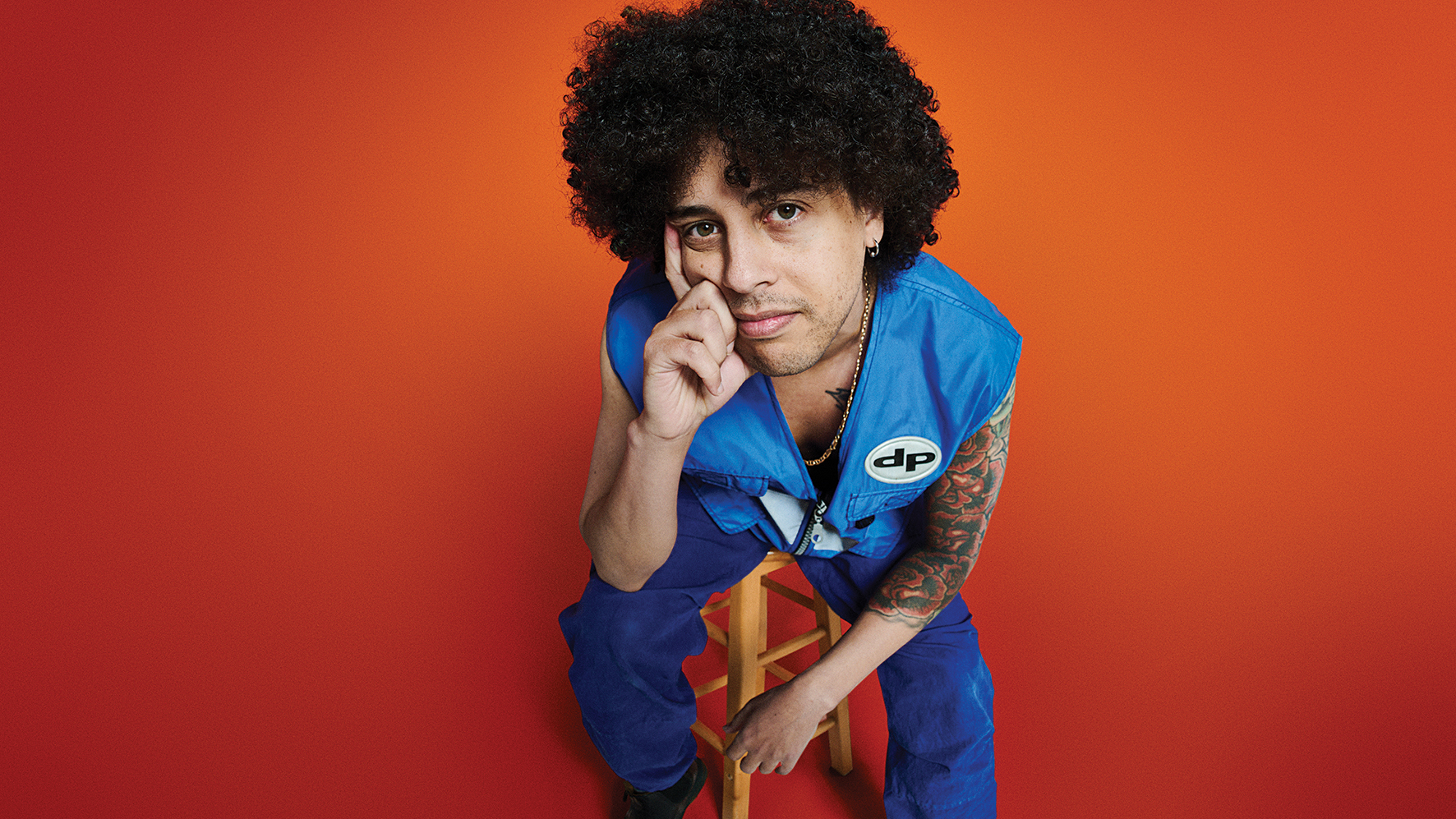
Want all the hottest music and gear news, reviews, deals, features and more, direct to your inbox? Sign up here.
You are now subscribed
Your newsletter sign-up was successful
Yes, believe it or not, Mafro is still being hailed as a talent to watch out for, even though he has quite clearly arrived and is doing the business.
Starting with Radio 1 he has already picked up dance legend Pete Tong’s ‘Essential New Tune’ for his debut single Shaken, a track that Tong’s fellow Radio 1 cool-cat Jaguar cited as a ‘Dancefloor Moment’. Then he helped rack up over a million Spotify plays with TSHA on the track Giving Up, before notching up his first soundtrack for Channel 4’s series I Hate You.
Enough? Not quite. There’s the small matter of co-producing Diplo’s single Let You Go and reworking the Sean Paul and Dua Lipa track No Lie for the Baywatch movie. Indeed there’s so much to talk about that Mafro tackles 16 questions instead of 15. Well, why not?
How did you start out in music production in the first place?
“I’ve been playing music since I was really young but spent most of my early years playing guitar in bands. After university – I studied music – I ended up working with loads of artists as a musician, writer and musical director, all while producing and working on my own electronic project. I like to think that having quite a wide range of influences has been helpful.”
When and how would you say you became successful, or at least able to make a living from music?
“The big turning point was when I decided to really concentrate on my own music. It was actually my fiancé who gave me the confidence to really back my own music and that was when doors started opening. Somehow, someone heard my music on Soundcloud and asked me to rework some music for a movie, one of those songs being No Lie by Sean Paul and Dua Lipa.
I only ever use the Arrangement View on Live but it is the only DAW that can keep up with how fast I like to work
“The Diplo collab came about last year when he reached out to my fiancé, who is also a really talented artist and producer – TSHA. I’ve always been a big fan of Diplo, especially the early Major Lazer stuff, so obviously I jumped at the opportunity to help. He had a killer vocal by Kareen Lomax so we worked up a few versions. Diplo is a master at collaborating and cherry picking the best ideas from different producers. I remember the song going through at least five iterations over a couple of months before we landed on what you hear on the radio now.”
What is your musical philosophy?
“If it sounds good, it is good. When I first started producing I spent way too much time on the technical side – gear, plugins, production tricks etc – probably because they are the easiest aspects to pick up. Those things are really important, especially in electronic music, but ultimately there is only so far you can take a mediocre idea. I really try to concentrate on the fundamentals now before I go deep on the production.”
Want all the hottest music and gear news, reviews, deals, features and more, direct to your inbox? Sign up here.
When did you discover the computer music route to music production?
“I knew I always wanted to produce my own music but like most kids I didn’t have a route in nor the money. Fortunately there was a drum and bass production course being run at my local college. I enrolled, got myself the cheapest Mac with my uni grant and got stuck in with Logic. It was only once I found [Ableton] Live and started working with other producers that things started to click. I only ever use the Arrangement View on Live but it is the only DAW that can keep up with how fast I like to work. Being a musician first I still gravitate towards hardware instruments. Effects are always in the box.”
Tell us about the gear in your studio
“I’ve got a bunch of instruments I’ve collected over the years but my bread and butter is the Sequential Prophet-6 synth and my modular gear. I’m a fan of hardware mostly for the immediacy. Something like u-he Diva probably sounds just as good but I just prefer to be hands on when I can. I always have a mono and poly synth stacked so I can play bass on one hand and chords or lead on the other. I’m all about speed when I write so I need everything within arms reach.
I’m a fan of hardware mostly for the immediacy, but something like u-he Diva probably sounds just as good
“I built my modular while down a YouTube rabbit hole. I thought I’d use it for little ambient sounds but I’ve ended up mainly using it for acid lines and hi-hat patterns. It’s an expensive way to get those sounds, but I try to justify it by forcing it into as many songs as I can.
“Actually the lead sound on my first single Shaken was from my modular. I’ve also got a Yamaha DX7, Roland TR-8S, Elektron Model: Samples; Behringer RD-6, RD-9 and Deepmind 12; a Wurlitzer and a bunch of guitars and percussion. There’s also a Mackie mixer with the Roland RE-20 and Erica Synths/Ninja Tune Zen Delay as send effects. Finally I have a UAD Apollo Duo for audio.”
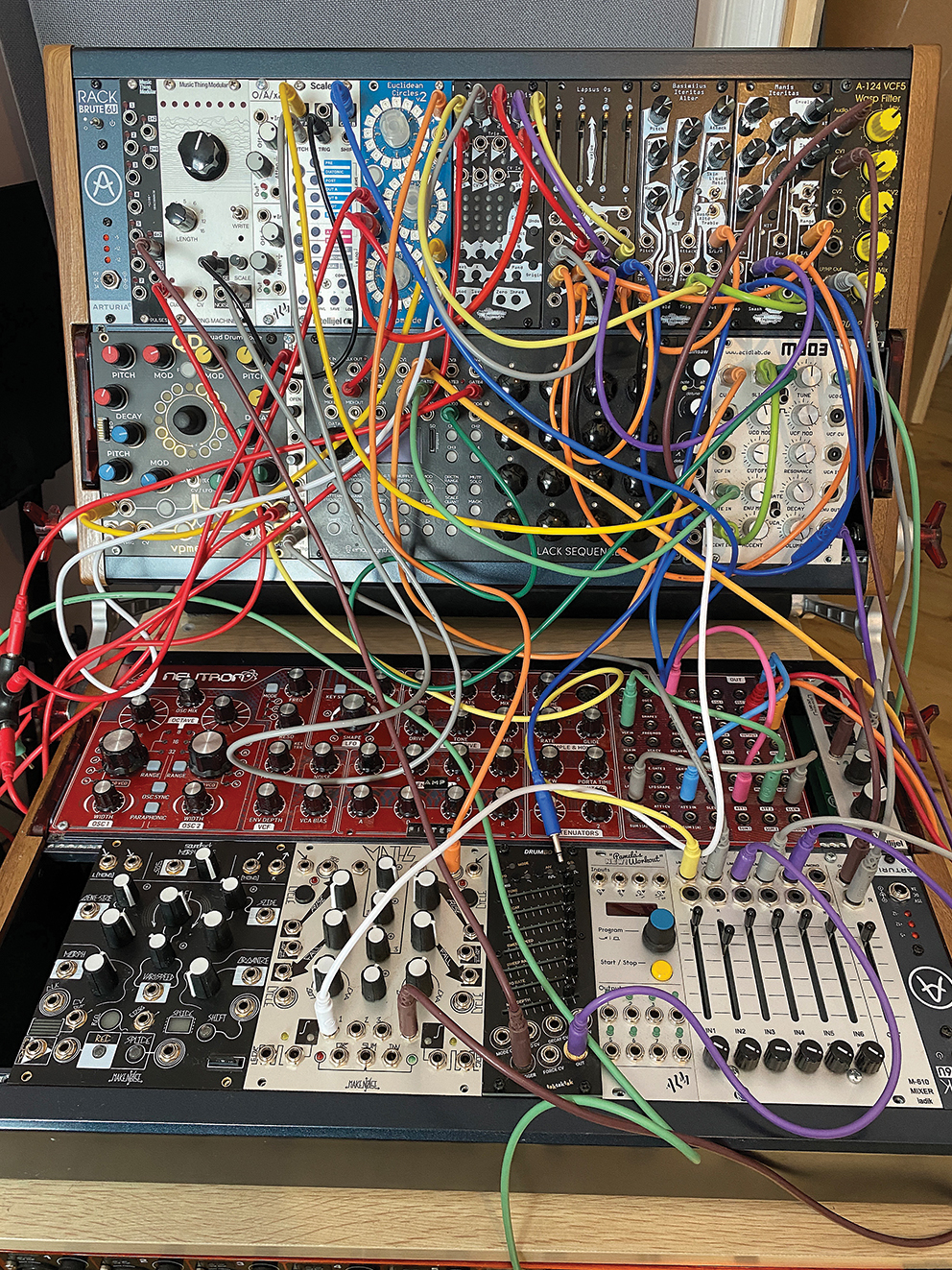
What are your favourite plugins?
“Ableton Wavetable: This is one of Ableton Live’s stock synths. It’s just so fast to work with and it sounds great. The UI is also really straight forward. If I need to make a basic sound quickly, this is my go-to.
“Tal-U-no: I had a Roland Juno 106 a few years back when they were cheap but I could never get on with the chorus noise. The U-no plugin sounds close enough for my ears without the background hiss. I really only use it for one sound... but it’s a great sound.
“Cableguys/Nicky Romero Kickstart: I’ve probably got about five sidechain plugins but I always come back to this one. It’s just mega easy to use and automate. A nice tip is to automate your sidechain up during build ups to increase the tension.
“Valhalla Room: This one is great for giving sounds a bit of space without washing them out. I like my music to sound like it’s in the same room as the listeners. This gets me there quickly.
“Soundtoys Decapitator: I often use this to turn soft sounds into aggressive leads. The Punish switch is always on. Another nice use is on 808 toms to make them sound a bit more modern.”
How do you tend to start a track?
“I usually start with some sort of vocal or instrumental hook. Chords and harmony are kind of my first love in music, so once I’ve got my hook I’ll spend a massive amount of time getting the chords just right. For me this part is just as important as the sound design itself. Once I’ve got the fundamentals locked, it’s then about drinking coffee and throwing the kitchen sink at it.”
Do you have any production tricks?
“I’m not a fan of synth pads in my own music so if I need to fill a space sonically I’ll do it with a frozen reverb on a chopped piece of audio from the song. Ableton has this built into it’s new Hybrid Reverb, but if you’re on another DAW you can also just set a reverb mix to 100% and the decay time really high. This will give you a nice tail that can be chopped, pitched up or reversed and used as a transition fx. Simple technique but lots of mileage.”
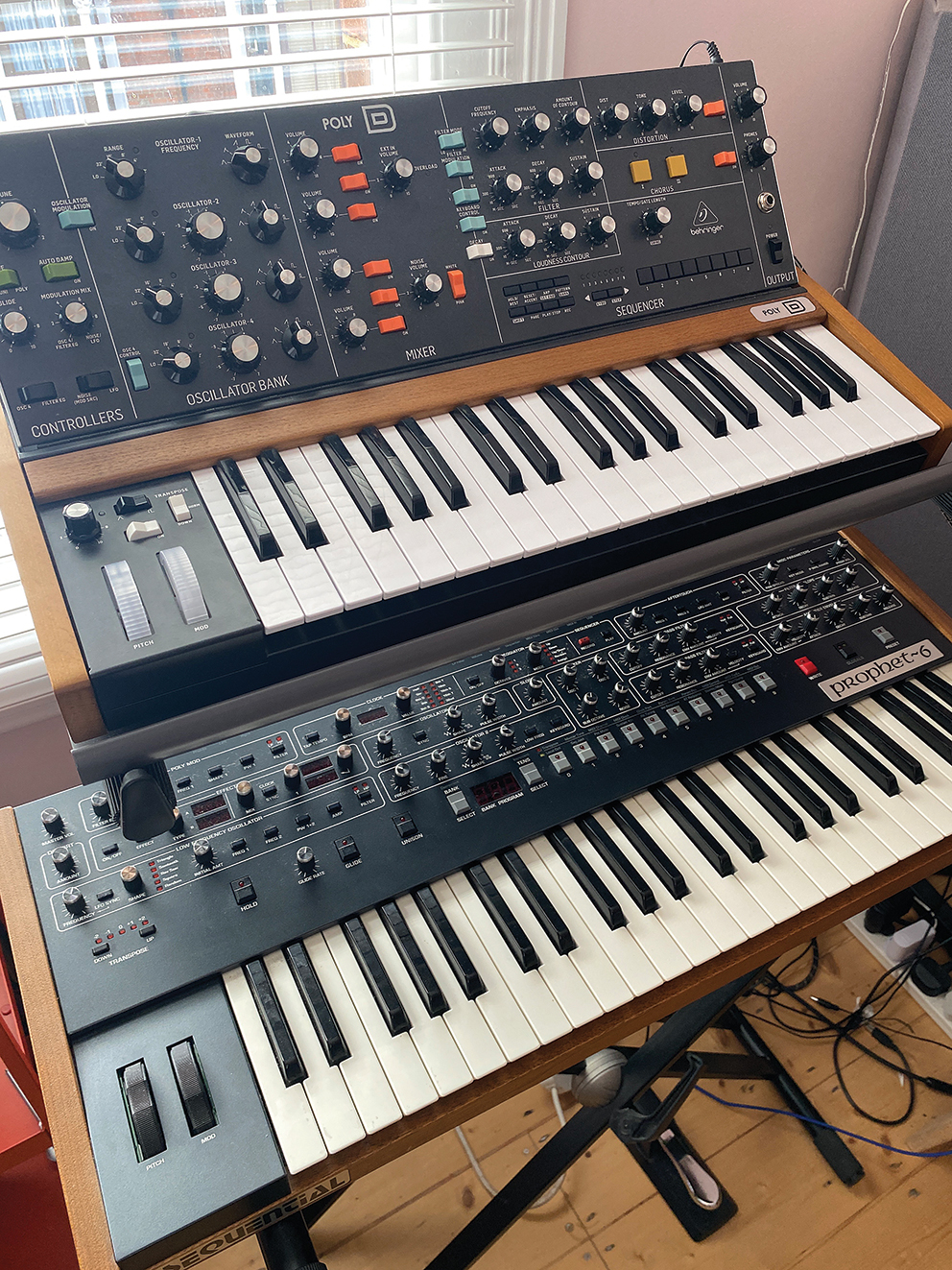
How do you know when a track is done?
“A track is finished once I can listen through it without getting bored. There are only so many arrangements that work, so if you’re not sure just reference another song you like. If you are adding things and they are either unnoticeable or making the song worse, that is a sign you’re probably done.”
What’s on your gear wishlist?
“A Fender Rhodes, Moog Voyager, Roland Juno 60 and an upright piano. Basically I want all the classics. Oh and some Neumann KH310 monitors; I can still remember the first time I heard them. I need a bit more space for them first though.”
What would you like to see developed in terms of studio technology and why?
“I love the idea of low-latency wireless audio. I believe there are some existing options but I haven’t tried them yet. The latency still looks a little high but I’m sure this will improve over time.”
Which track do you wish you’d produced and why?
“Archangel by Burial. This is probably an obvious choice but it still sounds fresh today. It’s the combination of sound design, selection and the shuffle of the track. A lot of people try to reference him but they never quite get it right.”
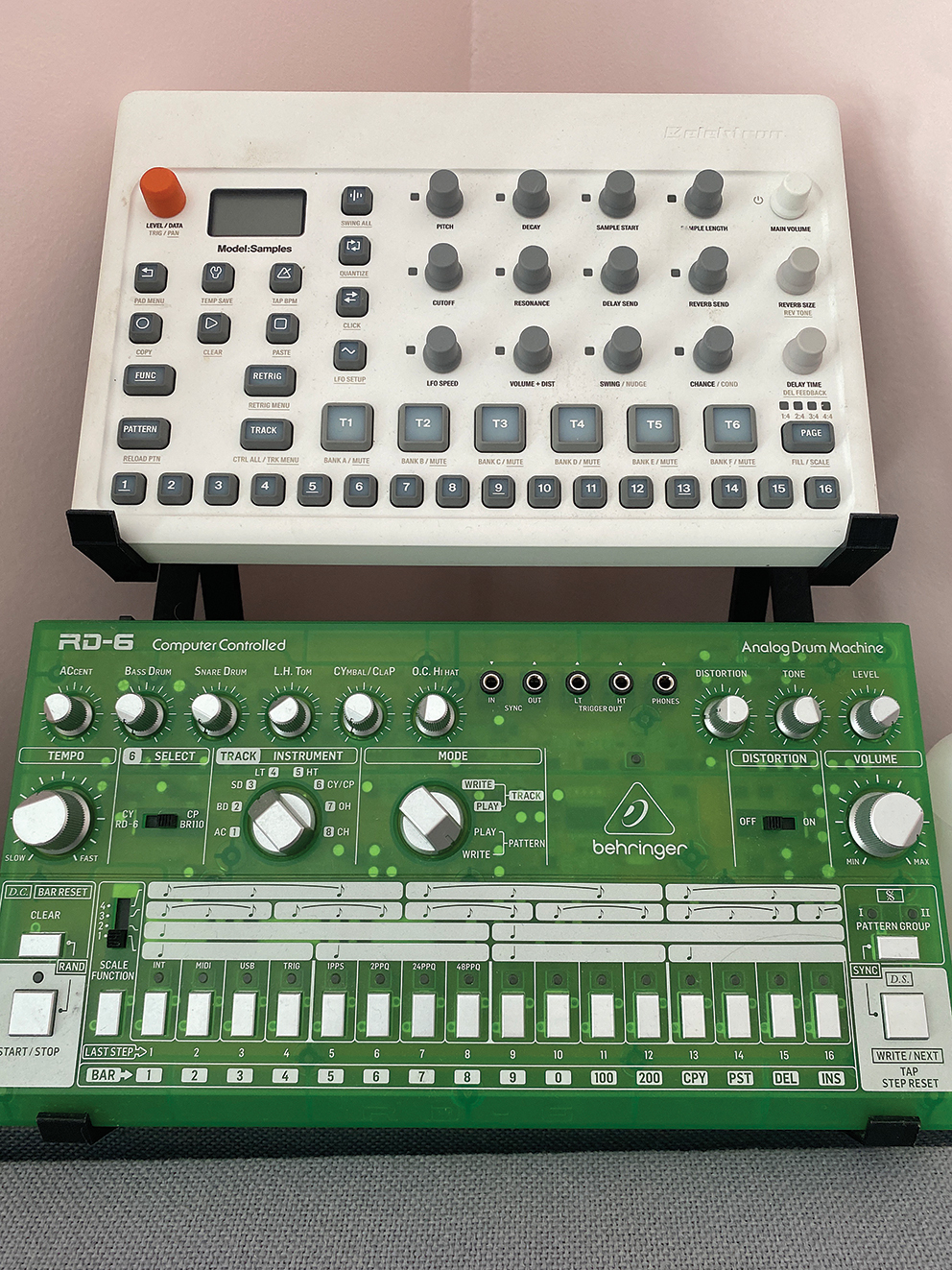
Any advice for playing live?
“Keep things as simple as possible. Equipment will break, gear will go missing, people will get sick and mistakes will happen. Just make sure you have some sort of backup so you can finish the show. That goes for DJing and live shows. Also protect your ears at all costs.”`
And what about studio advice?
“If you collaborate, try to keep sessions fun and positive. Most of my collaborations were singers I have previously worked with. Shout out to Qhairo, Hollie Carmen and Ell Murphy who are all really talented artists in their own right. Also, try every suggestion even if it sounds ridiculous. When writing, try not to get sidetracked by technical tasks; do your prep first. Nothing kills the vibe quicker than searching for a kick mid session.”
Any other advice from the industry that you can pass on?
“Make music you are proud of. At the very least you’ll have one person who likes it! Regarding the business side just try not to be a dick. If you’re easy to work with people will remember that and will help you down the line.”
What else have you got planned for the future?
“I’ll be concentrating on my next set of releases, playing my first shows as Mafro and remixing other artists. I’ve had a really positive response to the first EP so keeping the quality up will be key.”
Mafro’s Bloom EP is out this month.
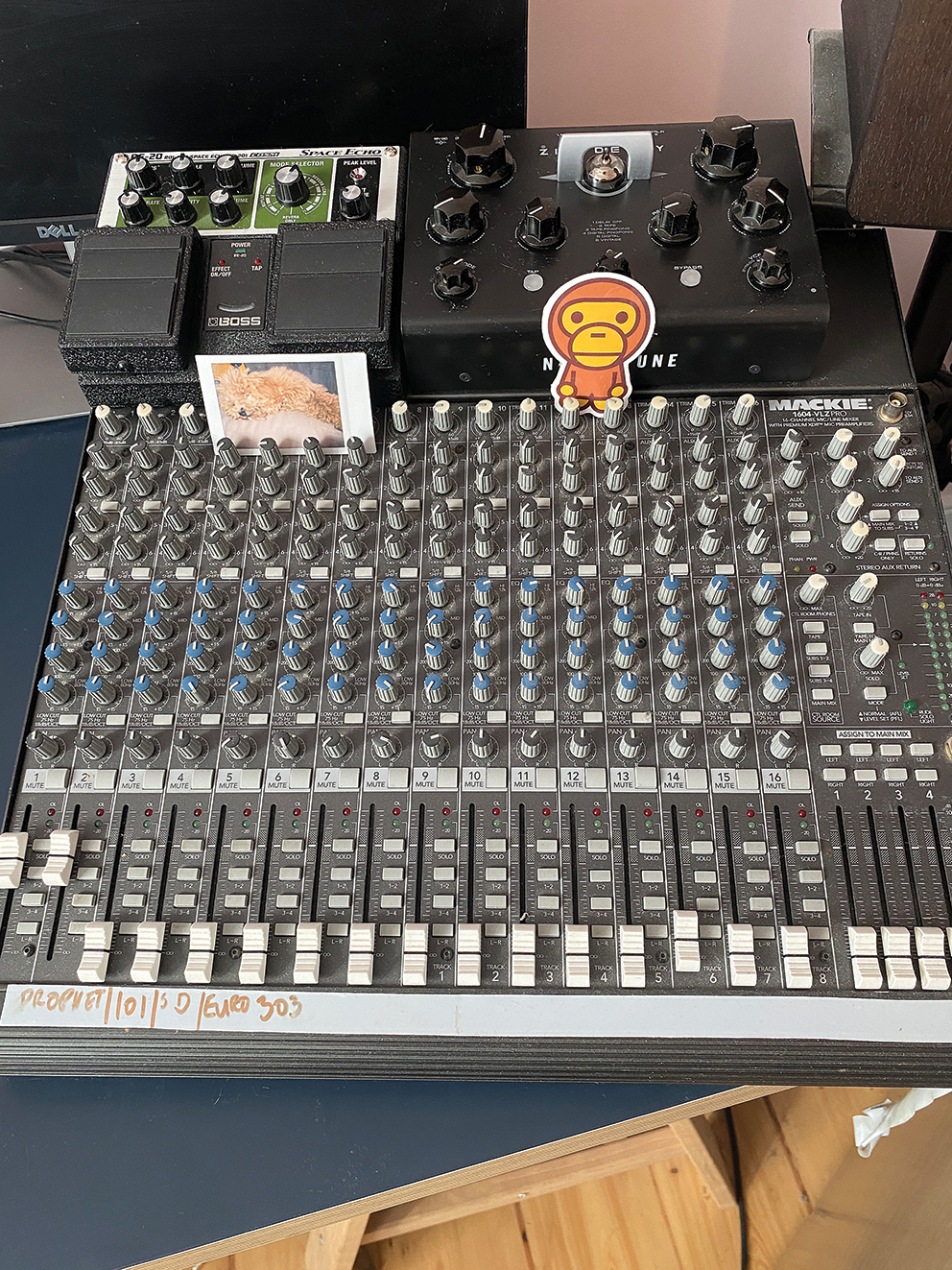


Computer Music magazine is the world’s best selling publication dedicated solely to making great music with your Mac or PC computer. Each issue it brings its lucky readers the best in cutting-edge tutorials, need-to-know, expert software reviews and even all the tools you actually need to make great music today, courtesy of our legendary CM Plugin Suite.
